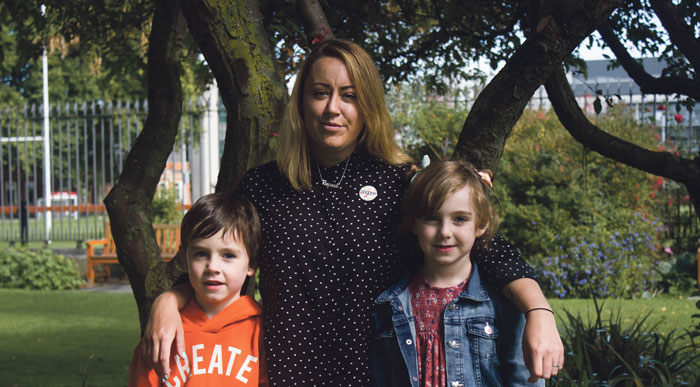For better or worse, it’s becoming increasingly evident that the working world is changing, and changing fast. Increasing competitiveness in every professional field means that a bachelor’s degree is becoming the norm, and even a requirement for unpaid internships.
The prospect of “working your way up” in a profession without some kind of formal qualification – a viable option only a generation ago – is now not only less preferable, but nearly impossible. This generational shift, as well as government and university-led initiatives to boost access to higher education, such as the Higher Education Access Route and the Trinity Access Programme (TAP), sees more students progressing to third level than ever before. According to the Central Statistics Office, the number of students continuing on to university has increased by 10 per cent over the last nine years.
Such an increase suggests that many of those recently entering and graduating from university nowadays are the very first in their families to do so. Being a first-generation student can present unique challenges for some students, with many universities in the UK providing extra supports and mentorship for students who are the first in their family to attend university.
There is a sense of responsibility. It’s knowing you might not get this chance again, and that there are others looking to you
However, it is increasingly evident that being a first-generation student is not a deterrent. Nicole Gent, an English and Russian student and the first in her family to attend university, explains that having excelled throughout her school years, it was common knowledge in her family that she would be the one to make this step: “It wasn’t pressure, just an expectation.”
For others, however, university was less a natural progression but rather a necessary choice. Carly Bailey, a mature student in law and politics, made the decision to return to full-time higher education in a time of severe personal crisis.
With her husband made redundant during the crash and their family home threatened and eventually seized, Bailey resolved to apply to Trinity. “We both felt that education was the only way we stood a chance of ever getting back on our feet. I felt that I owed it to my babies.”
Without the practical and personal supports provided by the Trinity Access Programme (TAP), Bailey doubts she would have managed. TAP is frequently the first port of call for first-generation students, supporting individuals from underrepresented areas and demographics who want to attend Trinity.
Diane MacSweeney, TAP Senior Cycle Co-ordinator and first-generation student herself, recognises this feeling of obligation often experienced by incoming students.
“There is a certain sense of responsibility that I know many have, being the first in their family or their community to go to college. It’s not pressure to perform exactly, but a fear of messing up. It’s knowing that you might not get this chance again, and that there are others looking to you as an example.”
For MacSweeney, it was her little sister. Aware of the effect her own achievements had on her younger sibling’s likelihood to attend third level, MacSweeney felt as though she owed it to her family as well as herself to thrive in college – this responsibility to set a standard was a feeling echoed by nearly all.
As a student parent, knowing that her children were growing up with Trinity as a constant was hugely important to Bailey. Familiarity with a campus statistically increases the chances of attending university, according to MacSweeney, and to this end, Bailey happily recognises the fact that Trinity is “absolutely” the norm now for her own children.
Life as a first-generation student often gives people new perspectives on their own families. This is true for Ellen Ryall, a final-year European studies student, who believes that the experience has brought her closer to her parents. Since everything at university is new not only for her but for the whole family, Ryall is careful to include them every step of the way, knowing how “genuinely excited and proud” they are of her achievements.
The quicker you can feel proud of yourself and where you’ve come from, the happier you’ll be and the better you’ll do
The same goes for John Drought, a second-year medicine student, who affirms that college has afforded him a deeper appreciation of his parents and the sacrifices they made for him and his brothers. “My parents saw the opportunity that they missed out on and worked hard so that we wouldn’t do the same”, says Drought. “As I’ve grown older, and definitely since coming to college, I’ve become much more appreciative of that.”
So what advice, if any, do these first-generation students have to offer? Above all, be patient, says Ciara Fanning, a second-year deaf studies student. “Being a first-generation student can be difficult. You don’t really know what to expect, your parents may have a million questions but be patient with them. They’re learning about all this the same as you are.”
This is reiterated by MacSweeney, who reminds students that the “typical” Trinity student is a thing of the past: “The quicker you can feel proud of yourself, of your background and where you’ve come from, the happier you’ll be and the better you’ll do.”
While their identity as first-generation college entries does not define these students, it does afford them a unique perspective on Irish education and the trajectory it’s likely to take in years to come. Having seen both sides of the coin, these first-generation students were in agreement that they were better off for it, as are the future students who will follow in their footsteps and be the first in their families to go to university.







